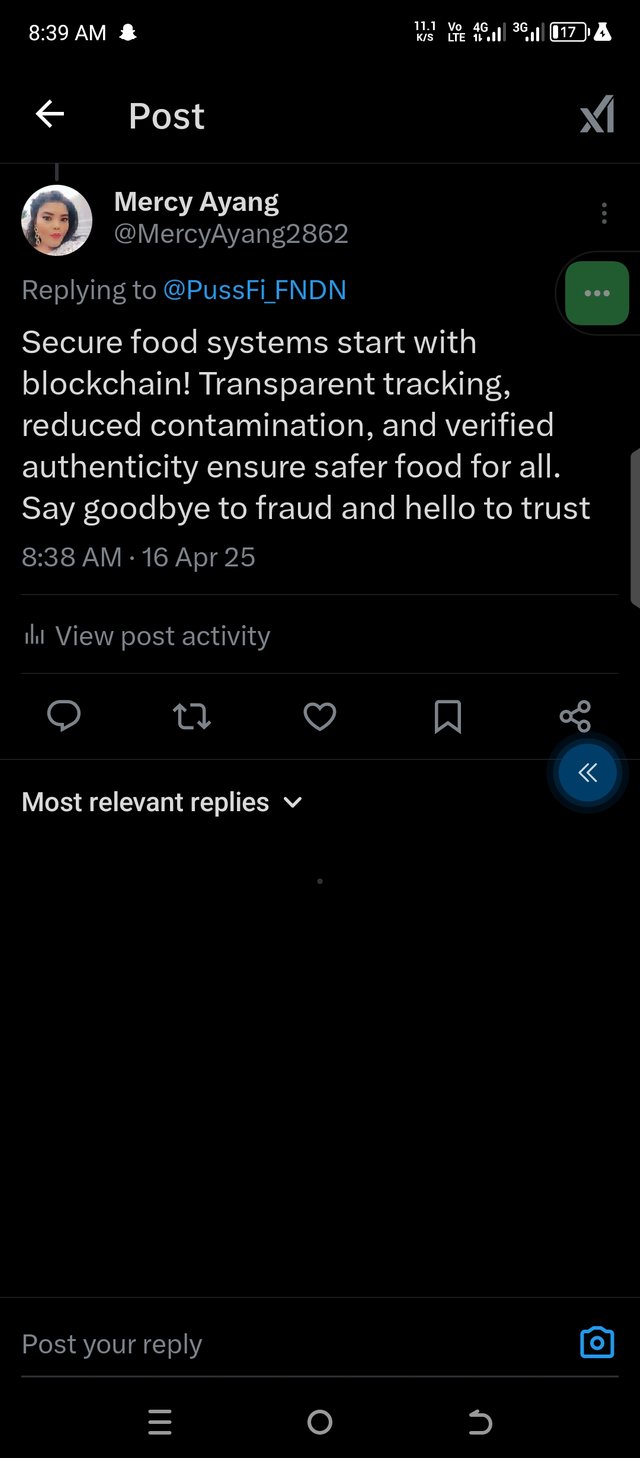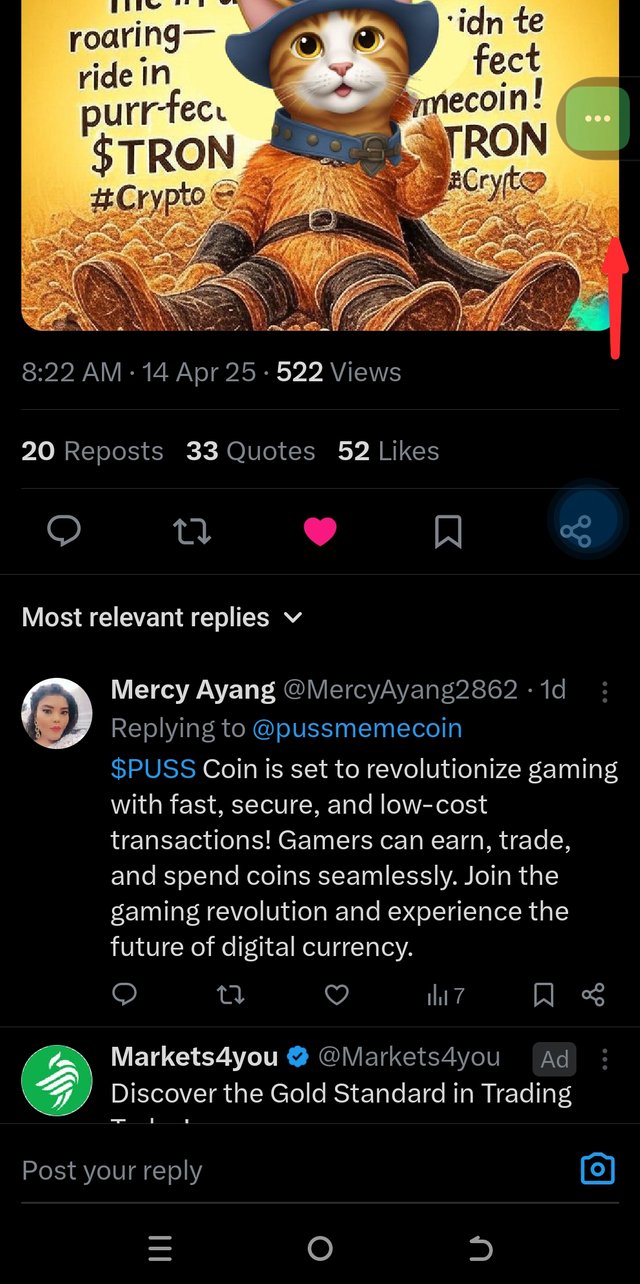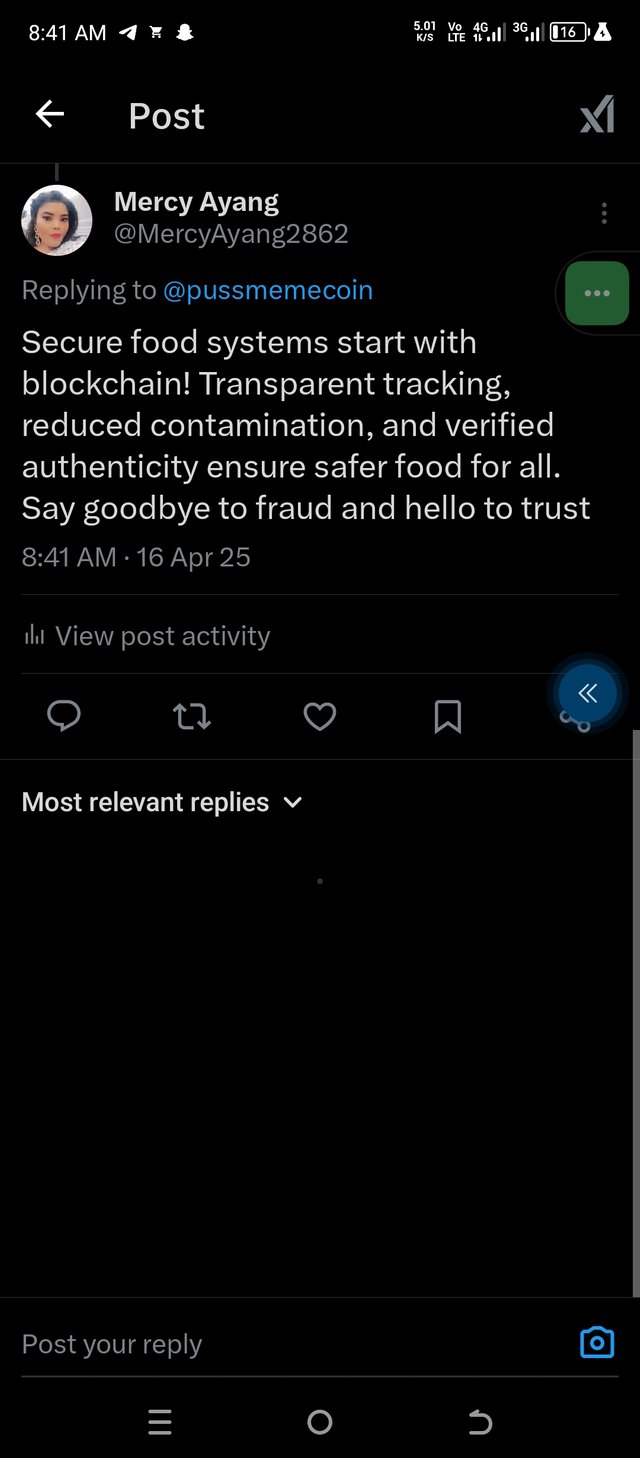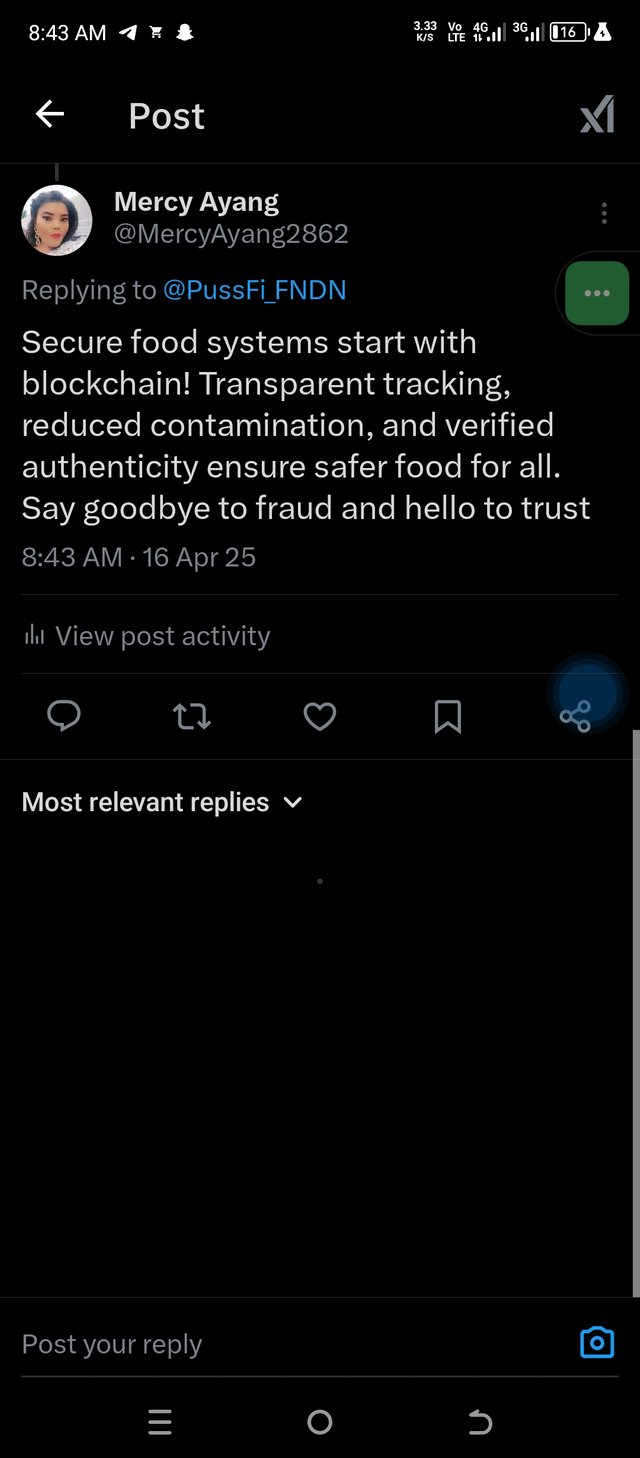INTRODUCTION
Blockchain is going to change the food industry by making a reliable way to track everything. The existing food supply chain lacks transparency such that fraud or contamination are difficult to trace. As every single transaction in the blockchain is permanently recorded, tampering becomes impossible. This builds the trust of consumers, regulators, and corporations that any food product is truthful, safe, and responsibly sourced.
Food fraud and mislabeling are never-ending dilemmas for consumers and businesses. Counterfeit goods, for instance, sham date labels on expired products that could contaminate them. Being able to track food in real-time using blockchain would stem these problems. Whenever these incidents take place, it will allow stakeholders to weed them out by providing a reliable record that is accurate and immutable.
As consumers continue to demand huge concern towards food safety and sustainability, blockchain appears to provide an answer. By tracking each step of the supply chain, blockchain minimizes risks associated with contamination and unethical practices. Farmers, suppliers, and retailers can instantly verify product authenticity and safety compliance. This would provide most stakeholders with a clear road to a more transparent and reliable global food system.
- ENCOURAGING TRANSPARENCY IN THE SEAFOOD INDUSTRY
Blockchain technology allows the verification of seafood origins by consumers and regulators by recording each transaction making it sufficiently powerful to ignore the illegal metrics of unreported fishing operations for marine ecosystems.
Data on fishing methods and locations cannot be manipulated by seafood suppliers with blockchain. This way, we make sure that the seafood people enjoy is sourced responsibly, supporting sustainable fishing practices to avoid overfishing and making it easier to follow global seafood rules.
Seafood fraud includes a variety of issues, like mislabeling and fishing without permission. However, the application of blockchain will have real-time tracking of seafood supply chains that guarantee the correct labeling and admirable practice regarding sourcing worldwide.
- ENHANCE FOOD SAFETY IN RETAIL AND RESTAURANTS
Restaurants and supermarkets will have access to food footprints by sourcing data on fresh products through blockchain technology. Scanning a QR code allows the businesses involved to view further information about the source, storage conditions, and handling of each food item.
It allows food establishments to meet high safety standards, as it ensures that inputs are just as got by the relevant authorities. With such tightened records, businesses could easily identify and withdraw the unsafe products, thus minimizing foodborne illness outbreaks and the liabilities.
Consumers benefit from the truth of blockchain. It can provide consumers with credible information about the sourcing of food when adopted into restaurants and grocery stores, enhancing type of confidence in making healthier choices on where to dine.
- OPTIMIZING INSURANCE CLAIMS FOR FOOD SAFETY PROBLEMS
Blockchain offers credible data that can make insurance claims related to food safety reliable. Accurate records of food handling, transportation, and conditions of storage will help insurers quickly and fairly assess claims with fewer disputes, leading to a smoother claims process.
Companies can prove that they have acted according to the safety standards by blockchain data in case of foodborne illness outbreaks. The legal risks are minimized, and unjustified claims are prevented, while reputational injury to companies is reduced by consumer safety.
Insurers, too, can take their share of the benefits by having the capabilities gained in fraud detection and verification of claims based on transparent, timestamped records. Consequently, this type of technology makes insurance cheaper, especially for compliant businesses, and inspires all improvements in food safety and risk management.
- PROMOTING INDUSTRY-WIDE PARTICIPATION
The open and immutable ledger under blockchain acts a sky high facility that saves cost and maximizes value by enhancing collaboration between different food producers, distributors, and regulators. This transparency makes food safety, minimizes inefficiency, and enables compliance to international food regulations.
Food supply companies can share their verified information on blockchain, and therefore less paperwork and delay are present in the process. This creates a connection on traceability and thus enables better cooperation among stakeholders in preventing fraud and contamination.
A common block system builds bridges for partnerships between industries and governments. Sharing data with blockchain will give both food businesses and authorities better value in responding to food safety issues, making consumer trust deposit to a great extent in the global food supply.
CONCLUSION
Blockchain technology is really shaking things up in the food industry. It holds a lot of promise for making everything more transparent, safer, and cutting down on fraud across the board. From seafood sourcing to insurance claims, blockchain casts its powers to lend accurate, verifiable records to the benefit of businesses, regulators, and consumers alike. By promoting a culture of collaboration and accountability, the blockchain remains an important channel for a safer, more efficient food system based on trust and sustainability across supply chains.
.webp.jpg)
.jpg)
.webp.jpg)
https://x.com/MercyAyang2862/status/1912410371693887750?t=2XHGnunCi-bLAwxiqP-vJA&s=19

Downvoting a post can decrease pending rewards and make it less visible. Common reasons:
Submit
https://x.com/MercyAyang2862/status/1911886654820007971?t=JlshFWafBj1c5aSub5Q7iA&s=19

Downvoting a post can decrease pending rewards and make it less visible. Common reasons:
Submit
https://x.com/MercyAyang2862/status/1912411008997425655?t=oUyGKP6xmzPhC4Qdj_bH4w&s=19

Downvoting a post can decrease pending rewards and make it less visible. Common reasons:
Submit
https://x.com/MercyAyang2862/status/1912411402255335819?t=Usf5beo7YZrwPuW6Eeytig&s=19

Downvoting a post can decrease pending rewards and make it less visible. Common reasons:
Submit
Note:- ✅
Regards,
@jueco
Downvoting a post can decrease pending rewards and make it less visible. Common reasons:
Submit